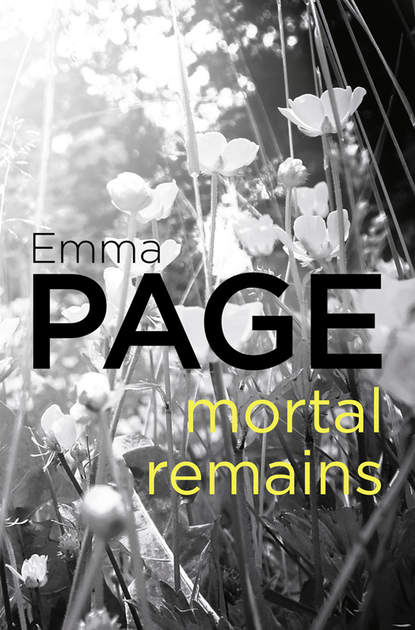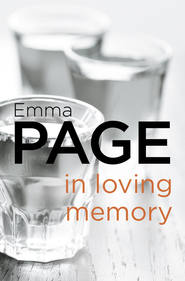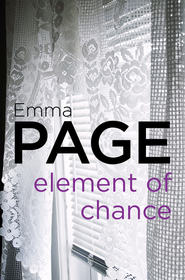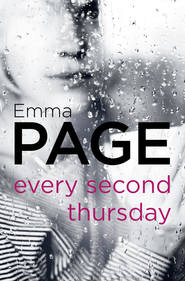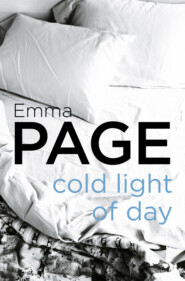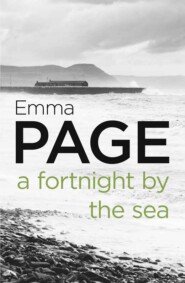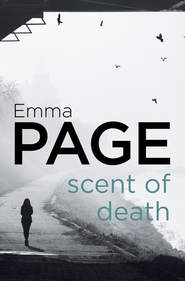По всем вопросам обращайтесь на: info@litportal.ru
(©) 2003-2024.
✖
Mortal Remains
Автор
Год написания книги
2018
Настройки чтения
Размер шрифта
Высота строк
Поля
In one of the more attractive parts of the estate a small grove of trees separated a group of dwellings from their neighbours. One of these dwellings, a semi occupying a corner plot in a pleasant cul-de-sac, was the home of Harry Lingard, Jill Lingard’s grandfather. It had been his home since boyhood, he had lived there alone since the death of his wife three years ago. They had had one child, a son, father of Gareth and Jill; he had been carried off in his thirties by a virulent form of pneumonia. His widow had married again two years ago and lived now with her second husband in a northern city.
Harry had been up since five-thirty, endlessly busy as always, every moment of his time structured and purposeful. A wiry little man, nimble and vigorous for his seventy-two years, a teetotaller and non-smoker, with an alert eye, a weathered face, a fringe of sparse, iron-grey hair surrounding a gleaming pate.
He had been a regular soldier, a driver, never rising above the rank of private but never disgracing himself either; he had served throughout the Second World War. When his army days were over he found himself a job as a driver-porter with Calthrop’s, an old-established firm of auctioneers and estate agents in Cannonbridge; he stayed there until he retired at sixty-five. He had immediately found himself another, lighter job as a yardman at Mansell’s, where he was still working.
During his time at Calthrop’s he had always done a bit of dealing – perfectly legitimate – on the side, mainly buying in the saleroom old items of furniture in a dilapidated condition at knockdown prices, working on them at home, putting them back in the saleroom later; he had always shown a worthwhile profit. He still kept up this practice, nipping along in his dinner-hour on viewing day, leaving his bids with a porter.
He owned his council house, he had been the first tenant on the estate to exercise the right to buy, exercising it in the teeth of entrenched opposition from the forces of local bureaucracy. The house was his pride and joy. Since the purchase he had modernized and extended, refurbished every inch, carrying out all the work himself.
On this calm September morning he ate his customary sparing breakfast while listening with keen attention to the business news on the radio. It was broad daylight by the time he set off a little later to fetch his morning paper. He glanced ceaselessly about as he strode along, keeping a citizen’s eye open for broken paving-slabs, blocked road drains, overflowing litter bins, overgrown hedges, graffiti, acts of vandalism. He halted now and then to jot down anything worthy of attention in the notebook he always carried.
As he rounded a corner he caught sight of someone he recognized going into the paper shop: Edgar Holroyd. He quickened his pace, he wanted a word with Holroyd and he intended to have it here and now. Repairs to tenants’ houses on the estate were falling behind again. Though no longer a tenant himself, Harry still fought the tenants’ battles for them, orchestrating every campaign. He was a well-known figure at the local library, thumbing through legal tomes and consumer manuals in the reference room.
Inside the shop, Edgar turned from the counter with his newspaper and saw with annoyance that Harry Lingard had stationed himself in the doorway, blocking his exit. Harry’s expression told him plainly he was about to be tackled.
Harry wasted no time in greeting or preamble but launched at once into a spirited attack on the council’s procrastination and penny-pinching. He pulled out his notebook and embarked on a rapid recital of individual cases.
Edgar was humiliatingly aware of the shopkeeper, the other customers, cocking sharply interested ears. He kept his expression, his voice, civil and detached. ‘This is hardly the time or place,’ he began.
‘It’s never the time or place for you jacks-in-office,’ Harry broke in.
A ripple of amusement travelled over the watching faces.
Edgar’s jaw tightened. ‘If you’d care to make an appointment,’ he said, still deliberately courteous, ‘I’ll be happy to see you in my office.’
Harry gave a snort of disdain. ‘You’ll dodge it again,’ he averred with conviction. ‘I’ll be fobbed off with that assistant of yours.’
All commerce in the shop had now ceased. Around him Edgar felt the intently listening silence. He strove to lighten his tone. ‘I’ll make it my business to deal with you myself,’ he promised.
Harry waved the assurance aside and plunged into a fresh chapter of complaints.
Would-be customers appeared behind him in the doorway. ‘We’re holding up traffic,’ Edgar pointed out, polite to the last.
Harry stood reluctantly aside and Edgar was able to make his escape. As he took himself swiftly off to the shelter of Fairbourne, Harry’s parting shot winged after him: ‘You haven’t heard the last of this.’
In a cottage not far from the council estate, Norman Griffin, Jill Lingard’s young man, lived with his mother, a widow in her fifties. Norman was an only child. His father had also worked in the building trade, in a casual fashion; he had been a good enough workman when he was sober and not engaged in picking fights. He had died not long after his son started school. For the greater part of Norman’s existence he had been accustomed to being king of the castle.
No early-morning jogging for Norman, he got all the exercise he wanted in the course of a day’s work. And he certainly didn’t start his day with a paltry piece of rye crispbread, he tucked into a substantial breakfast every morning, set before him without fail, eaten and enjoyed without haste.
This morning, as he reached the half-way point of his meal, his mother ceased her bustling about and poured herself a companionable cup of tea. She sat down opposite him to drink it.
He looked across at her. ‘Jill and me, we seem to have decided something last night. We’re getting engaged on her birthday, the first of December.’
A smile of genuine pleasure flashed across his mother’s face. ‘That is good news! She’ll make you a good wife, she’s got her head well screwed on. When are you thinking of getting married?’
He shrugged. ‘When we can settle on somewhere to live.’
She jumped in at once. ‘No reason why the pair of you can’t live here with me, to start with, at any rate. Your bedroom’s a decent size and you could have the front room to yourselves.’
By way of reply he gave an indeterminate grunt. There was no mistaking his meaning but she wasn’t offended, her suggestion had merely been a spur-of-the-moment notion. She took another drink of her tea. ‘Harry Lingard’s house,’ she said reflectively as she set her cup down. ‘Who gets that after he’s gone?’
‘Half to Jill and half to Gareth,’ Norman replied at once.
‘It could be many a long day before Jill gets her share,’ his mother commented. ‘Harry’s as fit as a flea, he could live to be a hundred.’ Another thought struck her. ‘What are you doing about a ring? Anything decent’s sure to cost a fortune. And Jill’s not a girl to wear any kind of cheap rubbish.’
He laughed. ‘I wasn’t thinking of giving her cheap rubbish. She likes old things. I thought I might find her a nice old ring, something with a bit of quality. There’s an antiques market in Wychford every Friday, I can try there.’ He was often over that way in the course of his work.
On Wednesday evening Jill Lingard came out of York House, the Cannonbridge department store where she worked, to catch her bus. She stayed on the bus past her usual stop – she shared a rented terrace house, a few minutes’ walk from Whitethorn Common, with two other working girls. She alighted by the council estate where her grandfather lived, she frequently dropped in on him in this way and he always made her welcome. He hadn’t long got in from work himself when she knocked at his door; he gave her a cup of tea as they talked.
‘Norman and I decided last night we’re going to get engaged on my birthday,’ she told him as she drank her tea.
He looked anything but pleased. ‘You know my opinion of that young man,’ he said flatly. ‘Up to no good when he was a lad. I wouldn’t go bail for his honesty now.’
‘You’re not fair to him,’ she protested. ‘He’s never in any kind of trouble these days.’
He thrust out his lips. ‘He’s got bad blood in him, his father was no good.’
‘Tom Mansell thinks well of him,’ she pointed out.
He gave a snorting laugh. ‘That’s because they’re cut out of the same cloth.’
She gave him back a look as stubborn as his own. ‘I’m going to marry Norman, you may as well make up your mind to it.’ She smiled suddenly. ‘Give him a chance, Granddad. For my sake.’
He made no response to that but demanded with an air of challenge, ‘Where are you thinking of living if you marry him? You needn’t imagine I’ll have the pair of you here with me.’
She jumped up. ‘We’ve no intention of asking you. We’ll find somewhere to suit us.’
He looked up at her. ‘You really are set on marrying him? He’ll take some managing.’
She gave him a smile full of confidence. ‘I wouldn’t want a man that didn’t take some managing.’ She stooped to drop a kiss on his bald pate. ‘We’re not going to fall out about it, are we, Granddad?’
He reached out and touched her hand. ‘That’s the last thing I’d want.’ He got to his feet, picked up her coat from the back of a chair. Something that had been bobbing about in his brain for the last few days surfaced again as he walked with her to the door.
‘I intend tackling Mansell about more money,’ he told her. ‘The tradesmen have all had a rise but nothing’s been said about me.’
She saw the familiar light of battle in his eye. ‘Don’t be too hasty,’ she cautioned. ‘It’s probably just an oversight. If you try laying down the law to Mansell you’re liable to find yourself out on your ear.’
Shortly before ten next morning Harry Lingard, busy in his duties about the yard, spotted the unmistakable figure of Tom Mansell getting out of his car. Beside him, as usual, the equally unmistakable figure of his son, Stuart.
Harry at once abandoned what he was doing and set off smartly to intercept Mansell. A few yards away, Norman Griffin was standing by his van, running his eye down the list of materials he had to pick up from the builders’ merchant, deliver out to various sites. He saw Harry stride purposefully up to Mansell, he caught the expression on Harry’s face. Norman lifted the bonnet of his van, stooped to peer inside, a position which enabled him to cock an unobtrusive ear in Mansell’s direction. Through the medley of sounds in the yard he could just about make out the gist of what Harry was saying. Silly old fool, he thought as he caught the drift, what does he imagine he can gain, tackling Mansell like that in the open yard, with other men about? The rawest apprentice lad could have told him all he’d be likely to get out of that would be a flea in the ear.
There could be no mistaking the cutting tones of Mansell’s brief response, even if his actual words couldn’t be distinguished. Mansell turned on his heel and went rapidly off towards the office, with Stuart tagging along. Harry remained where he was, his back to Norman. Judging by his stance, the angle of his head, the rebuff had by no means vanquished him.
Norman lowered the bonnet into place, climbed into his van and drove out of the yard. His route took him along Whitethorn Road. As he approached the common he saw, a little way ahead, Claire Holroyd standing alone at the bus stop, turning the pages of a book. She glanced up as he came to a halt beside her. He leaned across and opened the passenger door. ‘Hello, there.’ He gave her a cheerful smile. ‘Hop in, I’ll give you a lift into town.’
She hesitated. He picked up a duster from the dashboard shelf, whisked it over the passenger seat with a flourish. ‘Not a speck of dust, milady, clean as a whistle. Come on, hop in.’
She smiled suddenly, closed her book and stepped into the van.





